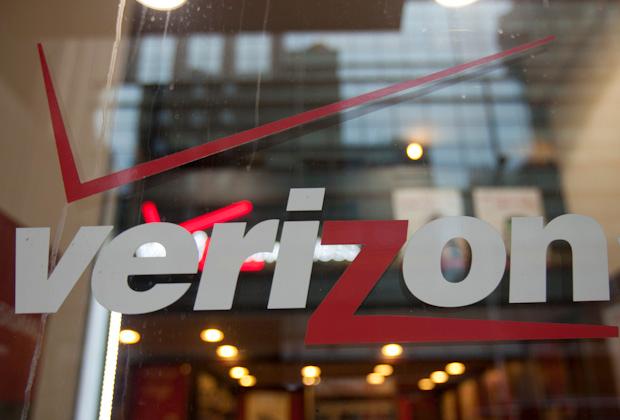What can the NSA do with phone and Internet data?
Verizon is required, by court order, to turn over telephone metadata to the government, a new report revealed. (Photo by Karly Domb Sadof/WNYC.)
With two separate reports about NSA tracking electronic data from the phones and computers of Americans on Thursday, many people were surprised to find out they were on the government’s radar.
Many of them were asking, what does the government want with this data and what all can they do with it?
Originally, the data the government collected was thought to be restricted to the numerical and measurable, things like phone numbers, call durations and call location. The Washington Post, however, revealed that NSA’s Internet data tracking included much more information — much more personal information as well. The NSA, according to reports, using a top-secret program called PRISM, is capable of tapping into the servers of top companies like Apple and Google — meaning they can see internet users’ audio, video, documents and other attachments.
Director of National Intelligence James Clapper acknowledged the program exists, and says it’s legal under the Patriot Act, as supervised by the Foreign Intelligence Surveillance Court. But he declined to discuss details of the program, except to say the data collection does not target U.S. citizens and others within the United States.

Thursday, Attorney General Eric Holder testified in front of the Senate Appropriations Subcommittee. In response to questions from Senators about collection of the phone records, he said:
“Members of Congress have been fully briefed as these issues, matters have been underway.”
Douglas Rushkoff, author of “Program or Be Programmed: Ten Commands for a Digital Age,” says Americans should not be surprised about this government activity.
“Everything you type onto a machine and distribute through a global network, you have to assume there’s some traction out there,” he said.
Now that government data tracking is publicly known, questions as to the scope of the tracking and the government’s motives still remain. The government has called the tracking an important tool for combatting terrorists, saying they are not interested in the personal data of Americans. In a statement Friday from California, President Barack Obama condemned the leak that made these programs public, but said the programs were important for keeping Americans safe.
At the same time, he said, he welcomed a debate about the tradeoffs between American’s civil liberties and safety.
Rushkoff points out that in both of these cases, the government isn’t interested in the messages most Americans are sending to one another — it uses them to create a model of normal behavior. This way, abnormal behavior sticks out.
“We are not the people they’re after, we’re the control group,” Rushkoff said.
Companies like Google, who offer many free services for email, chat and social networking are able to make their money by selling the data of their users, he said.
“What do we think we’re paying with? We’re paying with our data,” he said.
When tapping into a server like Google’s, the government is able to make predictions about human behavior based off the amassed data, including predictions about potential terrorist threats.
